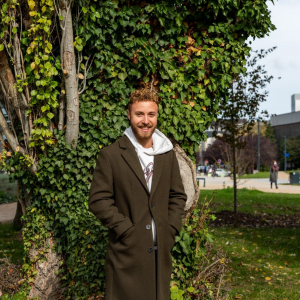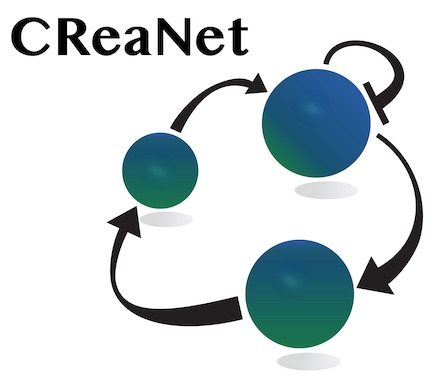
1. Please tell us a little about yourself. Where are you from and what is your research background?
I am Alvaro, a Spanish Chemistry student that went to the UK for my uni degree. I have always loved biological chemistry, and that applied to Medicine In the past I worked in a Structural Biological Lab in YSBL with Prof Fred Antson, where we were trying to understand the capsid and protein channels of the virus herpes, so we could get a deeper understanding on how Herpes virus infects. Also, I worked with Prof. David Smith in the Supramolecular field, trying to get Biomaterials that we could draw patterns with light as well as introducing cells to it.
2. Tell us briefly about the research project you have been doing as a Marie Curie Fellow?
Right now my research goes in a different direction. I still maintain my Supramolecular background but we apply it to out-of-equilibrium complex systems. The aim is to understand non-equilibrium systems and apply them to hydrogels and materials, so that we can fully artificially synthesize a material that can behave like organs (which themselves are out-of-equilibrium systems, otherwise we would be dead). In my case, I synthesized hydrogelators that are autofluorescence so we can study how the assembly and disassembly optically, and deeper comprehend how non-equilibrium Systems behave.
3. Why did you choose to apply for this particular project?
My Masters was closely related to this project, so it felt natural to fully immerse myself in the cause, and get to a PhD level study in what I previously spent so much time and energy.
4. As a reasercher, which goals and ambitions do you have for your future career?
I would like to apply more basic science to medical solutions or applications that during my life I want to see in use. I will have to start learning about business and other “out-of-science” skills so I could potentially create an application based Start-Up, and from there try to reach a more clear bridge between what we do in Academia (pure base science research) and what the population actually needs (solve real-life problems).
5. Who is your favorite scientist?
As a Spanish scientist, I must recognize brilliant minds in our country that due to not having enough funding to do science, they must be extra creative and resilient and they really are martyrs in terms of their quality of life to do science. An example is Margarita Salas, a prodigy student of Severo Ochoa, who was the first woman ever to receive the Echegaray medal in Science.
Margarita Salas discovered a new mechanism for the replication of DNA. The enzyme she isolated as the key to it has transformed the process of amplifying DNA from very small samples, and is now widely used in forensics, studies of ancient DNA, and oncology, as well as in basic research.
You can find more about her in this Nature article doi: https://doi.org/10.1038/d41586-019-03758-z
6. What was your first impression when you arrived in your host country?
It was very tough. I love France now, but it was not the most welcoming community I encountered, mainly because I spoke no French. There is a different vision of living, and the services I encountered have a different philosophy, even if I was born in a neighbour country. I moved to four different countries during my career, and so far France was the hardest to adapt. However, with time I learnt to start living like a French person, I enjoyed smaller things, I now get their humour and I must say at this point, is not a bad life.
7. Why is your project important for society?
As with COVID research, the importance of PhD students’ projects are not directly important to society in a close future. Science is slow, and it needs many turns before it becomes important. Sixty years ago someone saw for the first time a virus with a crown that could infect humans, but previous to that this minuscule particle was observed in birds and other mammals. Someone curious started asking questions, which potentially lead to further scientific studies. Twenty years ago a Spanish Group in CSIC started looking for a vaccine, even if the virus was not seen in humans. As well many techniques that helped identify the virus, sequence genetic material (like the PCR) and many techniques to develop vaccines and treatment were just pure curiosity. Now, we are thankful of that curiosity, and probably the answer of any PhD student back then about the importance of the project for society was not direct, but hopeful.
My project will hopefully (far in the future) help to create fully artificial organs capable of acting as living organs that will not bring any inmuno-resistance to the host, and that will end people dying waiting for an organ or due to organ rejection reactions.
8. Marie Curie fellowship requires a lot of travels, why mobility is important for research?
Research is a curious discipline. It needs many perspectives and visions, the more you travel, the more you meet different styles of people and backgrounds, the more likely you will start opening new windows to see your project with a different colour. Mobility is key for any science to advance. Also, we need to think of mobility as a sacrifice scientists do as well. Although travelling is seen as fun, which it is. Changing life and culture continuously for an altruistic cause it is not easy, and some settlement and peace is something we all seek at some point.
9. How did you find your passion for chemistry?
My passion for chemistry came from my abroad year in the U.S. I had a fantastic teacher, Mrs Rodolfy. She was able to bring excitement out of discovering new stuff. I remember doing a lot of bench experiments every week, and I just wanted to know more about why we can create different colours flames, why the ice float if it should sink, why some metals are more expensive than others, why people were spending so much money in creams, and why my grandma kept telling me that an apple a day keeps the doctor away.
10. Do you have any advice for other young researchers who are considering applying for a Marie Curie fellowship?
Don’t overthink, do it. Of course, moving to a different country has some fears and inconveniences, but for a PhD, it is the best decision you could do. This scholarship has big networks of quite important people, and it provides very unique skills and opportunities that others don’t. And obviously, it is very well paid compared to any other PhD scholarship around the world. Take advantage of every trip and person you meet, this PhD is tailored for you and it is easy to get used to things that are good, but don’t forget there is a limitation: time, so be smart about it.
